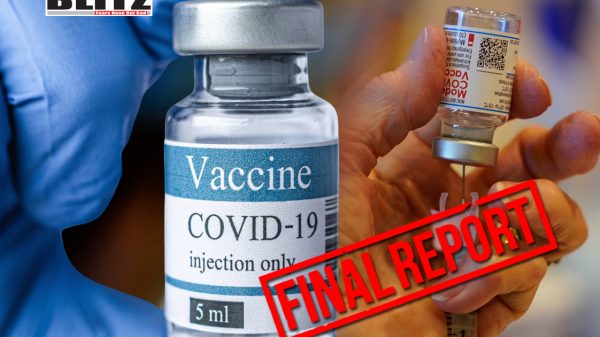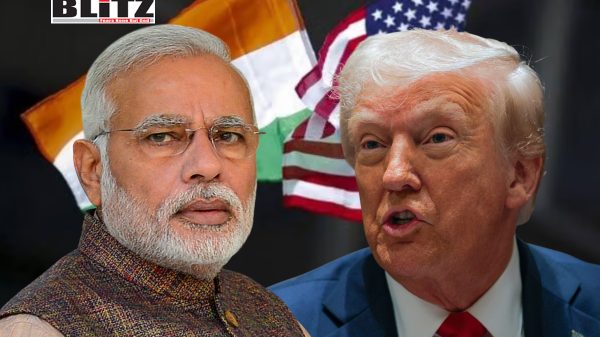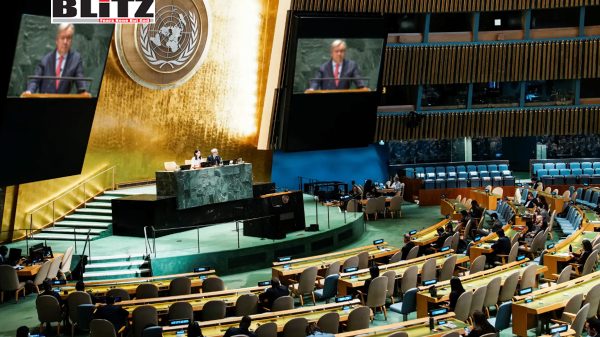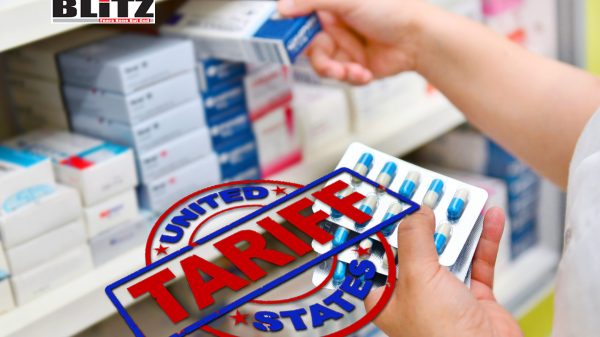Florida grand jury criticizes final report on Covid-19 vaccines
- Update Time : Saturday, January 11, 2025

On January 8, 2025, a Florida grand jury released its final report concerning potential “criminal or wrongful activity” surrounding the creation, promotion, and approval of the Covid-19 vaccines, following an extensive investigation initiated by Governor Ron DeSantis. The report, which brought to light several controversial findings, has garnered significant attention due to its critique of the US Food and Drug Administration (FDA), pharmaceutical companies like Pfizer and Moderna, and the broader public health framework that oversaw the pandemic response.
The Background of the Investigation
The investigation, authorized by the Florida Supreme Court in December 2022, was tasked with determining whether entities-including pharmaceutical manufacturers, government health agencies, and medical associations-had violated state laws regarding the development, clinical testing, and marketing of mRNA-based vaccines. Governor DeSantis, who has been vocal in his skepticism about certain aspects of the pandemic response, called for the grand jury’s formation. This move came after the release of interim reports by the jury in February and May 2024, which highlighted contradictions in government guidance on issues like mask mandates, lockdowns, and natural immunity.
The grand jury’s final report, however, revealed a complex and nuanced conclusion. While no criminal charges were filed against any individuals or organizations involved in the development of the vaccines, the report raised serious ethical concerns about the decision-making processes, lack of transparency, and public health communications that accompanied the approval and distribution of the vaccines.
Major Findings of the Report
Premature Emergency Use Authorization (EUA)
One of the most significant findings in the report pertains to the Emergency Use Authorization (EUA) granted to Pfizer and Moderna for their Covid-19 vaccines. The grand jury concluded that while it was understandable to expedite the approval process in response to a global pandemic, the EUA should have been limited to high-risk populations, such as the elderly and those with preexisting conditions. The jury expressed doubts about the broad application of the EUA to the general population, especially given the lack of evidence at the time showing that the vaccines were effective at preventing transmission of the virus.
The jury’s conclusion was that the initial trials did not adequately test for transmission efficacy, which was a critical factor in determining the need for mass vaccination. The FDA, however, did not require these trials to be designed with this focus in mind. This raised questions about the adequacy of the regulatory process and the decision to extend the vaccine’s use to populations who may not have benefited as much as initially claimed.
Inadequate Testing for Pregnant Women
The grand jury also highlighted a disturbing lack of thorough testing on the effects of Covid-19 vaccines on pregnant women. While vaccines were promoted to pregnant individuals based on limited observational data, the jury found that key risks to maternal and fetal health were not properly disclosed. The report emphasized that any adverse events linked to pregnancy during clinical trials were not fully investigated or shared with the public.
The jury criticized the FDA, Pfizer, and Moderna for their lack of transparency in addressing potential risks for pregnant women and for allowing such a vulnerable group to be subjected to what they described as “human experimentation.” The report cited instances of adverse pregnancy outcomes in early vaccine trials that were not adequately studied or disclosed in a timely manner.
Failure to Complete Safety Studies
Another critical issue raised in the grand jury’s report was the failure of both Pfizer and Moderna to complete safety studies that were required by the FDA after the vaccines were granted full approval. Despite clear mandates for post-marketing studies to assess long-term safety and effectiveness, the companies failed to meet several deadlines and were granted extensions. The jury expressed concern that these delays undermined the public’s ability to make informed decisions about vaccine safety, especially considering the billions of taxpayer dollars invested in the development, production, and administration of the vaccines.
The report suggested that the financial success of Pfizer and Moderna from the Covid vaccines should have been more than sufficient to fund and prioritize the completion of these safety studies. The delay in conducting these studies led to continued uncertainty regarding the long-term impact of the vaccines.
Lack of Transparency on Safety Signals
The grand jury also uncovered troubling revelations about the post-marketing surveillance of vaccine safety. Pharmaceutical companies and public health agencies use safety signal databases to track potential adverse effects following vaccine distribution. The report revealed that both Moderna and Pfizer investigated numerous potential safety signals—particularly related to myocarditis and other heart-related issues—but did not share these findings with the public.
Moderna reportedly investigated 65 safety signals, refuting 60 of them, while Pfizer examined around 100 signals, with only a few confirmed as significant. However, the public was not made aware of these investigations, and many of the safety concerns remained hidden behind closed doors. The jury argued that this lack of transparency undermined public trust and violated ethical standards in the way that vaccine safety was communicated to the public.
Myocarditis Cover-Up
Perhaps the most alarming finding concerned the issue of myocarditis, a condition involving inflammation of the heart muscle, which was identified as a potential side effect of the Covid-19 vaccines. The grand jury revealed that reports of myocarditis first emerged in Israel in February 2021 and were later confirmed in the U.S. military as vaccine-related. However, this information was withheld from the public until June 2021, despite the fact that government agencies, including the Department of Defense (DoD), were investigating the connection much earlier.
The jury cited instances where CDC officials publicly denied the existence of a myocarditis safety signal, despite internal communications indicating that investigations were already underway. This raised serious concerns about government and pharmaceutical transparency regarding vaccine side effects.
Government Censorship
Another significant finding from the grand jury report was the coordinated censorship efforts that were employed by the U.S. government and tech companies to suppress dissenting opinions on Covid-19 vaccines. The jury pointed out that social media platforms were pressured to remove content that did not align with the government’s narrative on vaccine safety, labeling such content as “misinformation” or “disinformation.” This effort extended to medical professionals and researchers who questioned the efficacy or safety of the vaccines, further stifling open debate and critical discourse on the topic.
The grand jury criticized both the government and pharmaceutical companies for curbing public discussion in this way, arguing that the suppression of dissent contributed to a broader erosion of public trust in health authorities and the vaccine approval process.
Deceptive Advertising Practices
The report also touched upon the marketing practices of Pfizer and Moderna, noting that both companies employed deceptive “unbranded” advertising campaigns to promote vaccination. These advertisements avoided mentioning the vaccine by name, allowing companies to sidestep FDA regulations requiring clear disclosures about the risks and side effects associated with their products. Instead, the ads encouraged the general public to get vaccinated without providing adequate information about the specific risks posed by the mRNA vaccines.
Grand Jury’s Recommendations
Although the grand jury ultimately declined to file criminal charges, it made several important recommendations aimed at improving the accountability and transparency of vaccine approval processes moving forward. These recommendations include reinstating the pre-1997 ban on direct-to-consumer advertising for therapeutics, tightening regulations on the “revolving door” between health agencies and the private sector, and requiring pharmaceutical companies to publish anonymized patient data after receiving FDA approval for any new vaccine.
On the state level, the jury called for stronger penalties for those who fail to comply with grand jury subpoenas and recommended that Florida lawmakers introduce new laws to facilitate greater oversight and transparency in vaccine approval processes.
While the Florida grand jury’s investigation did not result in criminal charges, its final report shines a critical light on the actions of government health agencies and pharmaceutical companies throughout the Covid-19 pandemic. The jury’s findings underscore significant ethical concerns about transparency, safety, and the manipulation of public health narratives. Although these revelations may not lead to immediate legal consequences, they contribute to the growing debate over the accountability of health authorities and the pharmaceutical industry, especially as the pandemic’s aftermath continues to be felt globally.











